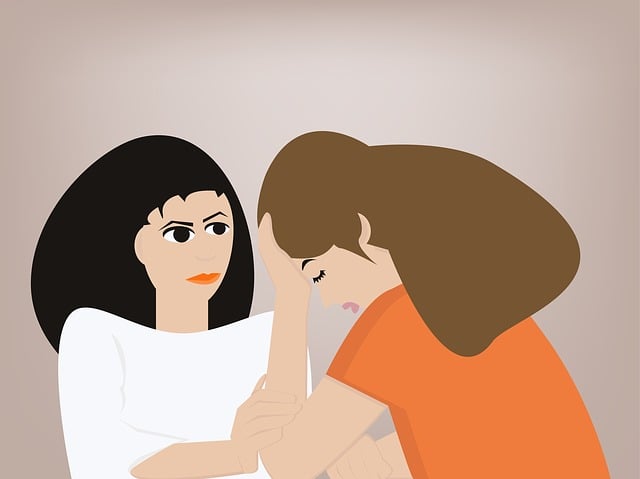Risk assessment is crucial in domestic violence scenarios, guiding interventions like those offered by Colorado Springs Domestic Violence Therapy. By analyzing psychological, social, and environmental factors, therapists predict potential risks and harm. This enables the development of tailored strategies addressing immediate safety concerns and fostering long-term emotional healing. Effective risk assessment leads to proactive measures, efficient resource allocation, and breaking violence cycles, resulting in healthier relationships and safer communities. Colorado Springs Domestic Violence Therapy promotes a nuanced approach, focusing on empathy, trigger recognition, and coping mechanisms like mindfulness and stress management. Integrated programs offer practical tools for trauma recovery, healthy relationships, and enhanced well-being.
In the complex landscape of domestic violence, risk assessment and harm minimization planning are vital tools for ensuring safety. This article explores these critical aspects, focusing on understanding risk assessment within domestic violence scenarios and developing comprehensive strategies for harm prevention. We delve into the essential role that Colorado Springs Domestic Violence Therapy plays in implementing these plans, offering specialized support to foster secure environments and empower individuals. By examining these key elements, we aim to enhance awareness and promote effective interventions.
- Understanding Risk Assessment in Domestic Violence Scenarios
- Developing a Comprehensive Harm Minimization Plan
- The Role of Colorado Springs Domestic Violence Therapy in Implementation
Understanding Risk Assessment in Domestic Violence Scenarios

In domestic violence scenarios, risk assessment is a critical component for ensuring safety and guiding interventions. It involves meticulously analyzing various factors to predict potential risks and harm to individuals involved. This process goes beyond merely identifying dangerous behaviors; it encompasses a holistic view of the dynamics within the household, considering psychological, social, and environmental influences. For instance, in Colorado Springs Domestic Violence Therapy, therapists employ structured risk assessment tools to evaluate the frequency and severity of violence, the victim’s fear levels, and access to support systems, among other factors.
Understanding these risks is not merely an academic exercise; it forms the backbone of harm minimization planning. By assessing the situation accurately, practitioners can develop tailored strategies that address immediate safety concerns while fostering long-term emotional healing processes. This includes incorporating self-awareness exercises to help victims process their experiences and set boundaries, as well as implementing depression prevention measures where needed. Effective risk assessment allows for a proactive approach, ensuring that resources are allocated efficiently and interventions are designed to break the cycle of violence, ultimately leading to healthier relationships and safer communities.
Developing a Comprehensive Harm Minimization Plan

In developing a comprehensive harm minimization plan, it’s crucial to approach each unique situation with tailored strategies. Colorado Springs Domestic Violence Therapy emphasizes the importance of empathy building strategies to foster understanding and connection between individuals involved. By recognizing triggers and implementing proactive measures, individuals can create safe spaces and minimize potential harm. This involves open communication, setting clear boundaries, and utilizing coping mechanisms such as mindfulness exercises and stress management techniques.
The plan should also address mental health considerations, particularly focusing on depression prevention and resilience building. Empirical data suggests that early intervention and support networks significantly contribute to positive outcomes. Through therapy sessions, individuals gain valuable tools to navigate challenging emotions, enhance problem-solving skills, and cultivate a sense of empowerment. This holistic approach ensures that harm minimization is not just reactive but proactive, empowering individuals to break cycles of violence or abuse and build lasting resilience.
The Role of Colorado Springs Domestic Violence Therapy in Implementation

Colorado Springs Domestic Violence Therapy plays a pivotal role in implementing comprehensive harm minimization strategies. This specialized therapy focuses on addressing the root causes of domestic violence, empowering individuals to break free from abusive cycles. Through tailored interventions, therapists help victims develop coping mechanisms, build resilience, and acquire essential social skills. By offering a safe space for expression and healing, these therapeutic services contribute significantly to trauma recovery.
Additionally, Colorado Springs Domestic Violence Therapy integrates various programs like Stress Management Workshops Organization and Social Skills Training within their framework. These initiatives aim to equip individuals with tools to manage stress effectively, foster healthy relationships, and enhance overall well-being. Such holistic approaches not only minimize harm but also promote positive transformations, ensuring a supportive environment for those affected by domestic violence.
In conclusion, understanding risk assessment and implementing harm minimization planning are pivotal steps in addressing domestic violence. By thoroughly evaluating potential risks and developing strategic plans, individuals and organizations like Colorado Springs Domestic Violence Therapy can effectively support victims and minimize harm. This comprehensive approach ensures that those affected by domestic violence receive the necessary tools and resources to break free from abusive cycles, fostering safety and well-being in their lives.














